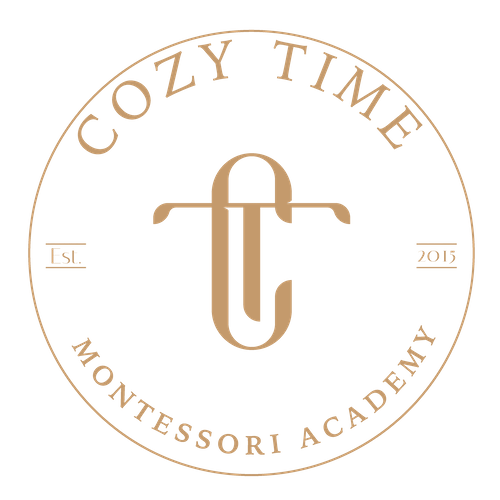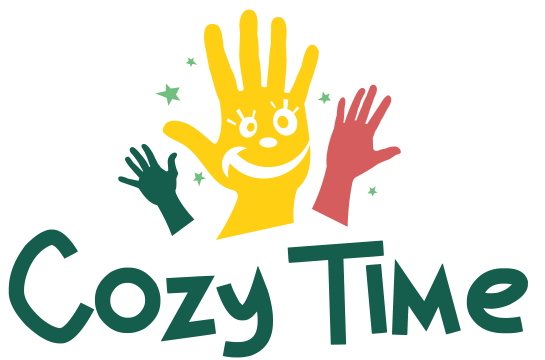Unpacking the Montessori Method
Let me take you back to my first encounter with the Montessori method. It was in the heart of Toronto, at a quaint daycare, in a room filled with children absorbed in their tasks, each one engaged in a different activity. Some were sorting shapes, others were counting with beads, and a few were engrossed in painting, all working independently and at their own pace. It was then I realized the magic of the Montessori daycare.
What is the Montessori Method?
Developed by Dr. Maria Montessori, this unique approach to education emphasizes independence, freedom within limits, and respect for a child’s natural development. Unlike traditional daycare settings, Montessori environments are meticulously designed to foster curiosity, creativity, and a lifelong love for learning.
Principles Behind the Montessori Method
The Montessori method stands on five core principles: respect for the child, the role of the absorbent mind, sensitivity periods, the prepared environment, and auto-education. Each principle intricately weaves the fabric of the Montessori learning environment, fostering a nurturing space for children to explore and learn.
Importance of Active Learning and Independence
According to Dr. Montessori, children learn best by doing. Active learning is therefore a cornerstone of the Montessori method, encouraging children to explore, manipulate, and discover. Independence, on the other hand, is nurtured as children are allowed to choose what they want to work on, fostering decision-making skills and self-confidence.
Montessori Daycare as Preparation for Kindergarten
Flash forward to a few years later, and I was visiting the same daycare, only this time with my own child. And while the faces of the children had changed, the essence of the Montessori method remained the same. It was as if time had stood still, preserving the integrity of a system that had proven its efficacy time and time again.
Montessori’s Unique Approach to Kindergarten Readiness
Montessori daycare does not merely prepare children for kindergarten, it prepares them for life. The focus here is less about specific academic skills and more about developing the whole child. This includes nurturing social-emotional growth, fostering independence, and instilling a love for learning, which are all crucial for kindergarten readiness. Moreover, Montessori daycare encourages active exploration and hands-on learning, which helps children build critical thinking skills. By preparing your child for daycare in this nurturing environment, you set the stage for their future educational experiences. The emphasis on collaboration and communication also equips children with the tools they need to interact positively with peers and adults alike. Through hands-on experiences, children engage in Montessori learning activities for kids that enhance their critical thinking and problem-solving skills. By interacting with a thoughtfully prepared environment, they learn to navigate challenges and collaborate with peers, building essential social skills. Ultimately, this holistic approach not only equips them for academic success but also fosters resilience and confidence that will serve them throughout their lives.
Skill Development in Montessori Daycare Centers
One of the key benefits of Montessori daycare is the development of important skills. Practical life exercises such as pouring, washing, and cooking foster fine motor skills and independence. Sensorial activities, on the other hand, enhance cognitive development, providing a solid foundation for math and science concepts.
Real-life Examples of Children Benefiting from Montessori Daycare
Children who attend Montessori daycare centers often show remarkable progress. Take, for example, my own daughter. Within a few months of joining the daycare, she was displaying increased confidence, better problem-solving abilities, and an impressive level of independence. The Montessori method had indeed prepared her not just for kindergarten, but for a lifetime of learning.
Are you considering Montessori daycare for your little one? Reach out to us at Cozytime Child Care, one of the best licensed Montessori centers in Toronto. We would be happy to schedule a visit for you to see our Montessori environment in action. For more information, call us at (416) 602 3811.
Unfolding the Tale of Traditional and Montessori Daycare for Kindergarten Prep
As a content writer with 15 years of experience and a mother of two, I vividly recall the day when I stood at the crossroads of choosing between traditional and Montessori daycare for my children’s kindergarten preparation. This isn’t a simple decision. Let’s delve into the heart of this unique journey and explore the differences, pros and cons, and why Montessori stands out in your child’s early years of education.
Key Differences in Approach
Traditional daycare often adheres to a structured curriculum, focusing more on academic achievement while Montessori daycare in Toronto, like Cozytime Child Care, emphasizes on child-centered learning. Children in Montessori settings are encouraged to explore their interests and learn at their own pace, fostering a love for learning that extends beyond the classroom.
Pros and Cons of Each Method
- Traditional daycare typically offers a uniform curriculum that may not cater to each child’s individual needs.
- Montessori daycare, on the other hand, tailors its approach to each child, promoting independence and self-confidence.
However, each method has its drawbacks. Traditional daycare might not foster independence as Montessori does, and Montessori might not be as structured as some parents would prefer.
Why Montessori Stands Out
What truly sets Montessori daycare apart is its emphasis on the holistic development of a child. By focusing on cognitive, social, emotional, and physical growth, it sets the foundation for a well-rounded education, making it a preferred choice for many parents in Toronto.
Playing Your Part: Parents’ Roles in Montessori Kindergarten Preparation
My experience with Montessori daycare taught me the powerful role parents play in their child’s educational journey. Let’s explore how parental involvement enhances the Montessori experience and ways to support Montessori principles at home.
Parent-Involvement in Montessori Daycare
Parents are considered partners in Montessori daycare, playing a crucial role in reinforcing the principles taught in school. This partnership fosters a consistent learning environment, both at school and at home. Through open communication and regular engagement, parents can help extend the Montessori philosophy into everyday life. Additionally, participation in Montessori after school activities allows children to explore their interests further, strengthening their independence and creativity. This collaborative approach ensures that children receive a well-rounded educational experience that supports their developmental needs both inside and outside the classroom. By actively participating in their child’s learning journey, parents can enhance the educational experience and ensure that the values of independence, responsibility, and respect are practiced daily. Montessori daycare benefits for children are evident as they develop critical thinking skills and a love for learning that extends beyond the classroom. This collaborative effort between parents and educators not only supports academic growth but also nurtures emotional and social development. By actively engaging with their children’s learning experiences, parents can help reinforce the Montessori approach to early education, ensuring that key concepts are understood and applied consistently. This collaboration encourages open communication, allowing parents and educators to share insights and strategies that support each child’s individual growth and development. As a result, children thrive in a holistic environment that nurtures their curiosity and fosters a lifelong love of learning.
Benefits of Parental Involvement
Active parental involvement in Montessori daycare provides an array of benefits. It paves the way for open communication, helps parents understand their child’s progress, and fosters a sense of community.
Tips for Supporting Montessori Principles at Home
- Create a child-friendly environment that encourages independence.
- Respect your child’s choices and foster their interests.
Choosing a Montessori Daycare: What to Consider
When looking for a Montessori daycare, it’s important to ensure the environment fosters children’s natural drive to learn. Don’t hesitate to ask questions about the daycare’s approach to discipline, the teacher-child ratio, and how they incorporate Montessori principles into their daily activities.
If you need assistance in making this important decision, don’t hesitate to reach out to Cozytime daycare in Toronto. We are here to make your child’s early education nurturing, engaging, and inspiring. Give us a call at (416) 602 3811 today.

